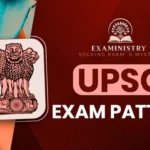Education, legal matters play a crucial role in ensuring that educational environments remain fair, safe, and compliant with regulations for both students and educational institutions. Education law encompasses a wide range of issues, including student rights, academic policies, institutional regulations, and faculty agreements. These complex legal areas require in-depth knowledge and expertise to navigate effectively. An Education Lawyer is essential in guiding students and institutions through these matters, ensuring that all parties involved are treated fairly and by the law.
The role of an Education Lawyer is to provide expert legal advice, representation, and support in handling legal challenges that arise within the education sector. They assist students in protecting their rights, help educational institutions remain compliant with regulations, and advocate for fair resolutions in disputes. Whether it’s resolving conflicts related to academic policies, addressing faculty contracts, or ensuring that students’ legal rights are upheld, an Education Lawyer serves as a vital resource in maintaining a legally sound and just educational environment.
What Does an Education Lawyer Do?

An Education Lawyer specializes in providing legal services related to the education sector, representing both individuals (such as students and faculty) and educational institutions. Their role involves a wide range of tasks aimed at addressing legal issues that arise in schools, colleges, and universities. One of the primary responsibilities of an Education Lawyer is to assist students in navigating disputes regarding their rights, including issues related to discrimination, disability accommodations, academic misconduct, and expulsions. They ensure that students are aware of and protected by their legal rights within the educational system.
For educational institutions, Education Lawyers offer guidance on complying with state and federal regulations, including those related to accreditation, teacher contracts, employment law, and student safety. They help schools and universities interpret and enforce policies, ensuring that these institutions maintain a lawful and supportive environment. Additionally, Education Lawyers play a key role in drafting and reviewing policies, contracts, and other legal documents to ensure that they are legally sound and aligned with best practices.
Furthermore, Education Lawyers may also handle disputes involving special education services, providing advocacy for students with disabilities to ensure they receive the proper accommodations and services mandated by law. They can also mediate conflicts between faculty and administration, helping to resolve employment disputes and contract issues. In essence, an Education Lawyer serves as a crucial advisor, negotiator, and advocate within the education system, ensuring that all legal matters are managed fairly and in compliance with the law.
Student Rights Protection
Education Lawyers are essential advocates for student rights. They ensure students are informed of their legal rights within educational environments and offer representation in cases of discrimination, harassment, wrongful discipline, or academic disputes. These lawyers ensure that students’ constitutional and civil rights are upheld throughout their educational journey.
Resolution of Academic Disputes
An Education Lawyer helps students resolve disputes with schools or universities related to academic
policies, including grade appeals, suspension, and expulsion. They help students navigate disciplinary hearings, ensuring fairness in decision-making and guiding them through legal procedures that protect their academic reputation and rights.
Compliance with Education Laws and Regulations
For educational institutions, an Education Lawyer ensures compliance with federal, state, and local laws, including anti-discrimination, privacy, and safety regulations. They offer advice on how to maintain legal standards in areas such as curriculum development, accreditation processes, and teacher qualifications, ensuring that schools operate within the confines of the law.
Faculty and Staff Employment Issues
Education Lawyers assist educational institutions with employment-related matters involving faculty and staff. They provide guidance on employment contracts, tenure disputes, salary negotiations, and teacher discipline. They also offer support in resolving conflicts between faculty members and administration, ensuring fair treatment and adherence to employment laws.
Special Education Advocacy
Education Lawyers play a vital role in advocating for students with disabilities, ensuring that they receive the appropriate accommodations and services as mandated by law. They guide families through the complexities of special education laws such as the IDEA (Individuals with Disabilities Education Act), making sure that students with learning disabilities or physical impairments are provided with a fair and equal education.
Contract Drafting and Review
Education Lawyers assist both individuals and educational institutions by drafting, reviewing, and negotiating contracts related to various aspects of the educational process. This includes student agreements, faculty contracts, non-disclosure agreements, and other legal documents. Their expertise ensures that contracts are fair, enforceable, and aligned with educational regulations.
Legal Representation in Disputes
Education Lawyers represent clients in litigation, whether they are students or educational institutions, in cases involving contract disputes, employment issues, or violations of students’ rights. Whether it’s representing a student in a wrongful expulsion case or defending an institution’s policy, these lawyers provide essential legal representation in courts or administrative hearings.
Policy Development and Advisory
In addition to resolving disputes, Education Lawyers also play a proactive role in policy development. They help educational institutions create clear, legally sound policies that comply with relevant laws and regulations. Whether it’s updating policies on student conduct or drafting faculty guidelines, Education Lawyers ensure that these documents are legally robust and help maintain a positive educational environment.
Why Do You Need an Education Lawyer?
Legal challenges can arise in various forms, and having an educated lawyer is crucial to navigating these complex situations. Whether you’re a student facing issues such as wrongful expulsion, harassment, or academic disputes, or an educational institution dealing with compliance and regulatory challenges, a legal expert can provide the necessary support. Education lawyers specialize in understanding the intricacies of education laws and can offer tailored advice to ensure that rights are protected and any legal matters are addressed effectively.
An education lawyer’s role is to guide clients through legal procedures, offer expert representation in disputes, and help ensure that all actions taken are legally sound. Students benefit from their knowledge when addressing grievances, while institutions rely on them to ensure that policies and practices comply with legal standards. Below is a table highlighting some of the most common situations in which students and educational institutions seek the help of an education lawyer.
| Situation | Student | Educational Institution |
| Discrimination | Race, gender, or disability-based issues | Ensuring non-discriminatory policies |
| Academic Disputes | Grade disputes, suspension, or expulsion | Handling faculty or student grievances |
| Special Education Needs | Access to accommodations | Ensuring compliance with special education laws |
| Title IX Violations | Sexual harassment or assault cases | Dealing with sexual misconduct policies |
| Bullying and Harassment | Protection from bullying or harassment | Addressing school climate and safety |
Benefits of Hiring an Education Lawyer
Hiring an education lawyer offers a range of benefits for both students and educational institutions. One of the primary advantages is the protection of legal rights. Education lawyers possess the expertise to ensure that students’ rights are upheld, whether it’s addressing issues like discrimination, academic disputes, or wrongful expulsion. For educational institutions, hiring a lawyer ensures compliance with various regulations and laws, helping to avoid costly legal disputes and maintain a positive reputation. Their knowledge of education law can be invaluable in navigating complex legal challenges efficiently.
Another key benefit of hiring an education lawyer is their ability to provide expert guidance and representation in legal proceedings. Whether it’s negotiating a settlement or representing clients in court or hearings, an education lawyer can offer tailored strategies to resolve issues. For students, this means having a knowledgeable advocate by their side during hearings or disputes. For institutions, legal counsel can help with policy development, ensuring that the institution’s practices align with legal standards and best practices.
Expert Legal Guidance in Complex Educational Issues
An education lawyer brings specialized knowledge of education laws, making them invaluable in navigating complex issues related to student rights, school policies, and regulatory compliance. Whether dealing with academic disputes, disciplinary actions, or faculty agreements, these legal experts ensure that all actions taken align with the latest laws and regulations, ensuring the best possible outcomes for their clients.
Protection of Students’ Rights
Education lawyers help protect students’ rights by providing expert advice in situations such as discrimination, harassment, bullying, or wrongful expulsion. They work to ensure that students receive a fair hearing, advocate for their best interests, and offer legal remedies when their rights are violated, allowing them to navigate academic or disciplinary challenges with confidence.
Avoidance of Costly Legal Disputes for Institutions
For educational institutions, hiring an education lawyer can help prevent expensive legal disputes. By ensuring that school policies, faculty contracts, and student regulations are compliant with federal and state laws, education lawyers minimize the risk of lawsuits and legal challenges. Their proactive guidance ensures institutions avoid costly litigation that could damage their reputation or financial stability.
Efficient Resolution of Disputes
Education lawyers are skilled at efficiently resolving disputes between students, parents, and institutions. Whether it involves academic grievances, tuition issues, or wrongful disciplinary actions, education lawyers help clients reach resolutions swiftly, often avoiding long and stressful litigation processes. Their expertise allows for negotiations, settlements, or hearings to proceed in a fair and timely manner.
Representation in Legal Proceedings
Education lawyers offer valuable representation for both students and educational institutions in legal proceedings, whether in court, administrative hearings, or tribunals. They guide their clients through each step of the legal process, ensuring that their rights are represented and that they have the best chance for a favorable outcome. Their presence provides peace of mind and ensures legal procedures are followed correctly.
Customized Legal Strategies for Policy and Compliance
Educational institutions benefit from an education lawyer’s expertise in drafting, reviewing, and implementing policies that comply with legal standards. Whether updating school codes of conduct, drafting faculty contracts, or ensuring adherence to new education laws, education lawyers provide valuable assistance in creating policies that protect the institution and its stakeholders while promoting a safe and effective educational environment.
Common Legal Issues in Education
Several legal issues are commonly encountered in the education sector. Below are some of the most pressing matters that education lawyers often handle for both students and institutions.
Student Rights and Responsibilities
- Freedom of Speech and Expression: Students have the right to express their opinions, both on and off campus, as long as it does not interfere with the institution’s educational environment.
- Privacy Rights: With laws like FERPA (Family Educational Rights and Privacy Act), students have the right to privacy regarding their educational records.
- Due Process in Disciplinary Actions: Educational institutions must provide students with due process before suspending or expelling them, ensuring fair treatment.
Discrimination and Equal Opportunity
Discrimination, based on race, gender, disability, and other protected characteristics, is a serious issue in education. Education lawyers are essential in ensuring compliance with laws like Title IX, which prohibits sex-based discrimination in educational programs or activities.
Special Education Law
Education lawyers specializing in special education law are crucial in ensuring that students with disabilities receive the necessary accommodations, modifications, and services as mandated by laws such as the Individuals with Disabilities Education Act (IDEA). These lawyers assist in navigating complex IEP (Individualized Education Program) processes and dispute resolution.
Sexual Misconduct and Title IX Compliance
Title IX ensures that students are protected from sexual harassment and assault within educational institutions. Education lawyers are experts in handling Title IX cases, ensuring that schools respond appropriately to incidents of sexual misconduct.
Academic Integrity and Discipline
Disciplinary actions, such as suspensions or expulsions, can be life-altering for students. Education lawyers help students fight unjust academic penalties and ensure that the institution follows due process procedures.
How to Find the Right Education Lawyer
Finding the right education lawyer is crucial to ensuring that your legal needs are met with expertise and professionalism. Start by identifying lawyers who specialize in education law, as this area requires specific knowledge of student rights, institutional policies, and educational regulations. Research online reviews, ask for referrals from trusted sources, and consult with local bar associations to gather recommendations for reputable lawyers.
Once you have a shortlist, schedule consultations to evaluate their experience and approach. During these meetings, discuss your specific legal needs and assess the lawyer’s understanding of the issues you’re facing. It’s also essential to consider their communication style, responsiveness, and willingness to work collaboratively. Make sure the lawyer’s fees are clear, and you’re comfortable with their proposed strategies. The right lawyer should not only offer legal expertise but also demonstrate an understanding of your unique circumstances and goals.
Specialization in Education Law
It’s crucial to focus on lawyers who specialize in education law. This area of practice involves unique legal principles related to student rights, educational policies, and school regulations. Specialized lawyers bring valuable expertise to complex cases like academic disputes, student protection, and institutional compliance. Their in-depth knowledge ensures a more effective strategy to resolve educational issues and protect your rights.
Research and Referrals
Begin your search by conducting thorough research. Online resources and referrals from trusted individuals—such as students, colleagues, or educational institutions—can point you toward reputable education lawyers. Additionally, reviews and testimonials can offer insights into a lawyer’s performance. Local bar associations often provide recommendations as well, guiding you to experienced professionals in your area.
Initial Consultation
After narrowing down your options, arrange an initial consultation with potential lawyers. This meeting is an opportunity to gauge the lawyer’s communication skills, approach to your case, and overall professionalism. It allows you to discuss the details of your case, evaluate their experience with similar legal matters, and determine whether their approach aligns with your needs. It’s also important to assess how comfortable you feel working with them during this first interaction.
Assess Experience and Track Record
When choosing an education lawyer, their experience and history with similar cases are vital. A lawyer with a proven track record in handling academic disputes, student rights violations, or institutional compliance cases will bring a wealth of knowledge to your case. Inquire about past successes and ask how they plan to address your unique situation to ensure they can meet your expectations and needs.
Clear Communication and Transparent Fees
Effective communication is key when working with any lawyer. Ensure that the lawyer you choose is clear, approachable, and capable of explaining complex legal matters in simple terms. Additionally, discuss their fee structure upfront. A transparent lawyer will provide clear explanations regarding their hourly rates or flat fees, helping you avoid any surprise costs or misunderstandings down the line.
Wrapping Up
The role of an Education Lawyer extends far beyond just offering legal advice; they are crucial in guiding both students and educational institutions through complex legal landscapes. Education Lawyers serve as trusted advisors, advocates, and problem-solvers, helping resolve disputes, navigate intricate regulations, and ensure that legal rights are upheld. Their expertise allows them to provide personalized legal support that addresses the unique needs of each individual or institution, promoting fairness and justice in the educational environment.
By offering tailored legal guidance, Education Lawyers play a significant part in creating a positive and productive educational experience. Their work ensures that all stakeholders—whether students, faculty, or administrators—can focus on their primary goals without being hindered by legal obstacles. The skills and knowledge of Education Lawyers help foster an atmosphere where fairness, compliance, and opportunity are not just ideals but actionable realities.
FAQs
What is the role of an education lawyer?
An education lawyer provides legal advice and representation in matters related to education law, including student rights, discrimination, academic issues, special education needs, and institutional compliance. They help both students and educational institutions navigate the legal complexities in the education sector.
Can an education lawyer help with special education cases?
Yes, education lawyers specialize in special education law and assist students and families in obtaining the necessary accommodations, services, and modifications under the Individuals with Disabilities Education Act (IDEA).
Do education lawyers represent both students and schools?
Yes, education lawyers can represent both students and educational institutions. Their expertise helps students protect their rights and ensure fair treatment, while also guiding schools in complying with relevant laws and policies.
What are some common legal issues that education lawyers handle?
Education lawyers commonly handle issues related to discrimination, student rights, special education, sexual misconduct under Title IX, academic integrity, and institutional compliance with education laws.
How do I know if I need an education lawyer?
If you face legal issues in education, such as discrimination, disciplinary actions, special education concerns, or Title IX violations, seeking advice from an education lawyer is a wise decision to ensure your rights are protected.
What should I expect during an initial consultation with an education lawyer?
During the initial consultation, the lawyer will review your case, discuss the legal options available to you, and provide advice on the best course of action. They will also outline their fees and the process involved in handling your case.
How can an education lawyer help educational institutions?
Education lawyers assist schools and universities in developing compliant policies, handling faculty or student disputes, ensuring accreditation, and responding to legal issues such as sexual misconduct claims or special education requirements.








